Politics
INEC Insists on e-Transmission of Polls Results *Wants National Assembly to revisit Electoral Act
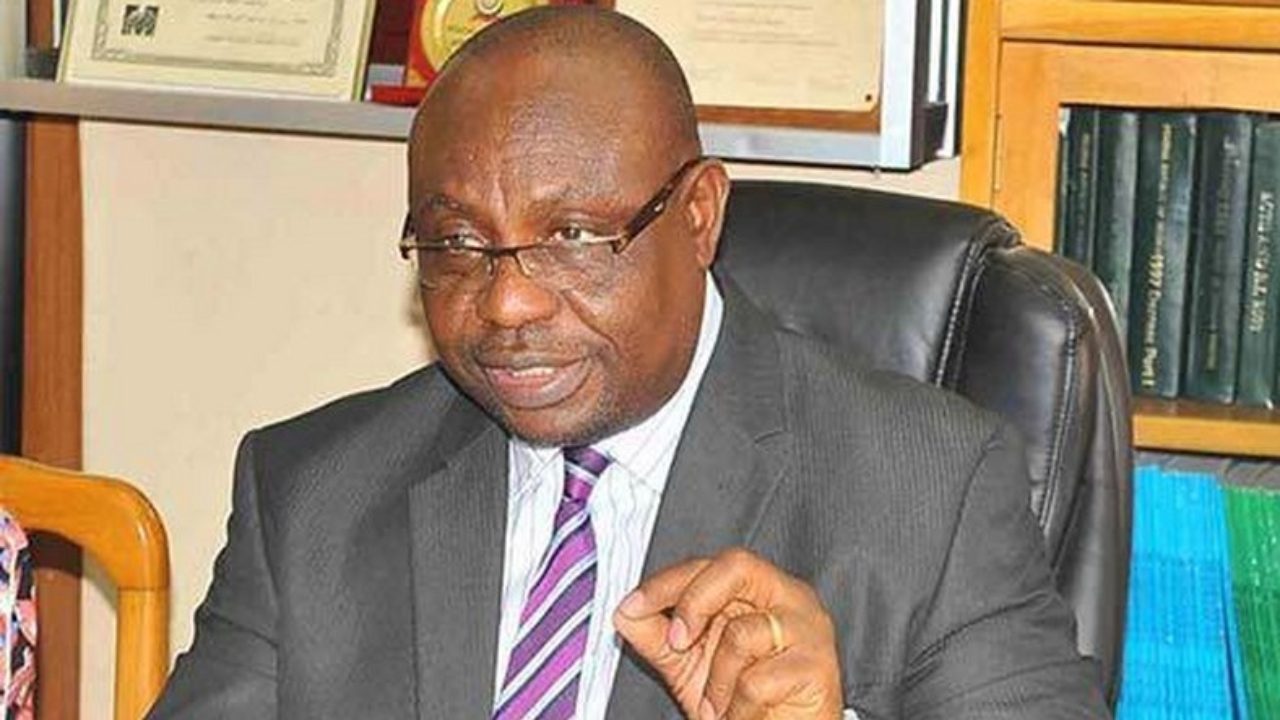
*Says commission not subordinate to NCC
*Saraki asks legislature to act in national interest
The Independent National Electoral Commission (INEC) has asked the National Assembly to revisit the Electoral Act amendment bill, assuring that it has the capacity and technical knowhow to undertake electronic transmission of election results throughout the country. INEC declared that it was not subordinate to the National Communication Commission (NCC) or answerable to any government agency.
In a similar development, former Senate President, Dr. Bukola Saraki, advised members of the Joint Conference Committee of the National Assembly to move fast in considering the different versions of the Electoral Act (amendment) Bill passed by both chambers and let their decisions be guided only by national interest.
That was as the Nigeria Civil Society Situation Room, a coalition of over 70 organisations, asked the Senate to quickly resolve the conflicting aspects of the Electoral Act Amendment Bill so as to save the country from long-drawn litigations and uncertainty, which could put INEC’s preparations for the elections in jeopardy.
INEC called on the Senate and House of Representatives to quickly amend Sections 63, 65 and other relevant sections of the Electoral Act, which bar the commission from collation of election results electronically. It insisted that electronic transmission of results was doable, and it would guarantee safety, honesty and transparency.
INEC’s National Commissioner and Chairman, Information and Voter Education, Festus Okoye, insisted that the electronic transmission of results real time was the best guarantee of transparency.
Speaking in a television programme monitored in Abuja on Monday, Okoye said INEC was determined to use electronic devices to improve Nigeria’s electoral process, and deliver free, fair and credible elections. Okoye said for such to become a reality, the National Assembly must show courage by amending the relevant sections of the Electoral Act.
He said, “Although INEC is increasingly tilting towards the use of technology to deliver a free, fair and credible elections in Nigeria, we want the National Assembly to amend the law, which prescribed the method elections are being conducted at the moment.”
Okoye admitted that INEC was still using the manual method, as enshrined in the Electoral Act, by collating election results from the Polling Units (PU), using Form EC8A, and Registration Area Collation Centre (RACC), with Form EC8B up to local government areas, and using Form EC8C to collate results, which are computed manually before announcement.
Okoye maintained that INEC had perfected the use of technology to conduct elections starting from the 2023 general election.
He stated, “For us to alter the methodology, the Electoral Act must be changed to accommodate the new innovations. We want National Assembly to amend the Electoral Act to enable INEC deliver a more transparent, fair and credible elections that will meet the aspirations of Nigerians. They should also look at 51, 52, 53 and 57 of the Electoral Act.
“We are already uploading election results electronically but we will need the relevant sections of the Electoral Act to be amended to avoid litigations, because INEC doesn’t want our election winners to be determined by the law courts.”
Okoye said the commission was not answerable to NCC or any other federal government organ in carrying out its constitutional duties, saying INEC has inherent powers to conduct elections.
He said, “Nobody can bully INEC to share its powers given by the Constitution of Federal Republic of Nigeria of Nigeria. Section 160 of Nigerian constitution mandates INEC to give NCC duties to perform, not NCC giving INEC orders.
“Also, Section 52 of Electoral Act gives INEC inherent powers to conduct elections in any manner it wants, including e-voting. Again, the 2015 Electoral Act (as amended), which was signed by the former president, Dr. Goodluck Jonathan, has given INEC unfettered powers to conduct elections in the best method available.”
He insisted that the present method of manual collation of election results from PU, RACC and LGA should be done away with, adding, “With the introduction of Bimodal Voters Accreditation System (BVAS) and other devices by INEC, elections in Nigeria can only get better, hence, National Assembly should join in deepening Nigeria’s democracy.”
On his part, Saraki said in a statement by the head of his media office, Yusuph Olaniyonu, that the harmonisation of the versions of the Electoral Act (amendment) Bill and its eventual passage should be concluded in time so that the law could be assented to before the political process leading to the 2023 general election. He said the success of the next round of elections would depend on the existence of a new enabling law with relevant provisions that would guarantee a credible, free, fair and peaceful process.
The statement said, “That is why it is important that members of the Conference Committee should strive hard to rise above partisan and personal considerations. They should take decisions solely based on national interest and the need to strengthen our electoral process. The country is bigger than our various political parties. Nigeria is even bigger than any individual or any loyalty we may have to an individual.
“That is why members of the committee should give genuine and deep consideration to the delicate issue of adopting the provision on electronic transmission of results, which will help to strengthen our electoral process, deepen our democracy and improve the level of participation in the elections.
“Your assignment is very crucial to the future of our country and if through your work we get a good law that will help in reforming the political process, you will be completing a great circle in the building of a legacy. It is a circle that started, when the immediate past National Assembly passed the same bill and only failed to get presidential assent, because of the politics of the period.
“I want to remind members of the respective hallowed and honourable chambers that at this point in our national history, we cannot fail to seize the opportunity that this bill presents to us to enthrone a credible and transparent electoral process. Whatever you do as you consider this bill is your own role in making history, in saving our democracy and building a future that is stable and progressive, where elected leaders truly represent the interest of the people.
“It should be noted that even after leaving the National Assembly, I have consistently canvassed the need for us to quickly pass a new Electoral Act that will include important provisions aimed at developing our electoral system. On one occasion in September 2020, during a webinar conference on ‘Electoral Reforms and Democracy’ organised by Centre for Advancement of Civil Liberties, I called on Nigerians to continue to create awareness on the importance of the Bill ahead of the 2023 elections
“At this point, I need to appreciate the efforts of young people across the country, who went round spending their time and resources to create events aimed at generating awareness on the Bill, all members of the National Assembly, who have made sacrifices to get us this far, various development partners, civil society groups, members of the press and other stakeholders who played different roles in getting the Electoral Act (amendment) Bill to the semi-final stage, where it is almost getting to the point of becoming an effective Act of Parliament. We must continue to improve our system until we achieve the real objective of ‘One Man, One Vote’ and where the votes of the electorate count.”
The Nigeria Civil Society Situation Room said the version of the Electoral Act Amendment bill stipulating the recommendation of NCC before transmission of results electronically was a breach of the constitution. Convener of the group, Ene Obi, said at a news conference on Monday in Abuja that this would not augur well for democracy in the country. Obi insisted that the power to determine the procedure for transmission of results should be vested with INEC.
The Situation Room and its European Union Support to Democratic Governance in Nigeria (EU-SDGN), its implementing partners, called on the National Assembly to show selflessness during the harmonisation.
It stated, “Notwithstanding the landmark proposals in the on-going review process, civil society partners and key stakeholders have identified about 17 points of divergence in the versions of the Electoral Act Amendment Bill passed by the National Assembly. These are the use of smart card readers, deployment of electronic voting, collation and transmission of results, cost of campaigns, process of nomination of candidates, among others.
“As expressed by a vast majority of electoral stakeholders and Nigerians, we are concerned by these identified differences in the proposals, particularly, regarding electronic transmission of results and deployment of technological devices.
“Following from our experience and observations of elections in recent years, as well as widely held views by Nigerians, we expect the harmonisation committee to accept the version of the bill that allows INEC to determine the mode of conduct of elections, including transmission of results.”
Obi said INEC had shown that it had adequate capacity to use technology in elections, including the transmission of results.
Ene added that INEC’s capability had been proven during the off-circle elections and through its use of the Z-pad and more recently, the Bimodal Voter Accreditation System (BVAS).
Another member of the Situation Room, Cynthia Mbamalu, said the group recommended the adoption of the senate version of clause 43, which recognised that INEC could use voting devices alongside election materials.
In addition, Mbamalu said, the group urged the harmonisation committee to adopt the Senate’s version of clause 49, which recognised the use of other technological devices alongside smart card readers for voter accreditation. She added that the House of Representatives version of clause 52 should be adopted, as it gave INEC the power to determine the procedure for voting and transmission of election results.
Chuks Okocha in Abuja and Onyebuchi Ezigbo, Thisdaylive
Politics
PDP: Sule Lamido blames court for mass resignation from party
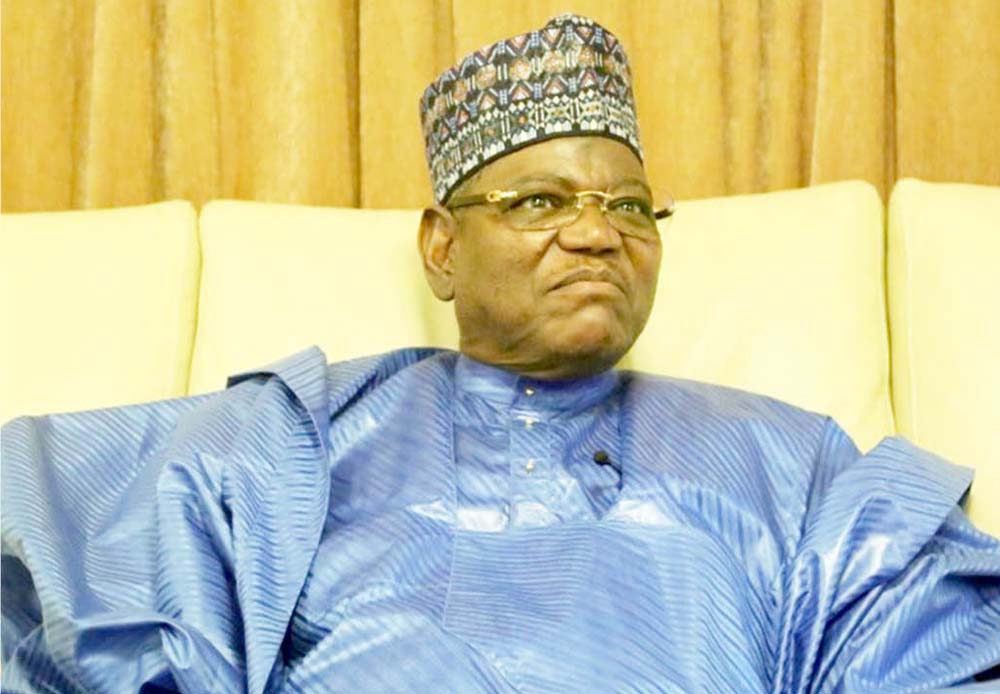
PDP: Sule Lamido blames court for mass resignation from party
Former governor of Jigawa State, Sule Lamido, has revealed why the Peoples Democratic Party, PDP, is grappling with a gale of resignations from its folds in recent times.
Some notable members of the nation’s leading opposition party have quit the party in recent weeks.
Speaking on the exodus from the party, Lamido blamed the situation on the procedures of the court.
He said the actions of the court and the leadership of the PDP have left the party in a precarious and parlous state.
He added that the PDP mass resignation was as a result of frustration engendered by the leadership of the party and the judiciary.
Speaking during an interview with This Day, Lamido bemoaned the selfish moves of some leaders of the party.
Recall that there has been an ongoing resignation by members of PDP especially in Imo and few other states.
The former governor said if the court did not insist that Senator Samuel Anyanwu was the National Secretary, when he (Anyanwu) went and contested for the Imo State governorship election, the position of National Secretary would have gone to another person from Imo State.
READ ALSO:
- Father mourns 14-year-old daughter poisoned at school, says ‘I’ve failed you my baby’
- Zamfara APC defends Mattawale, says protesters are rented crowd
- SERAP sues Wike, 36 govs over N5.9tn, $4.6bn loans
He also asserted that some persons outside the PDP are influencing what happens in the party.
Lamido said, “Emeka Ihedioha and other chieftains of the PDP that resigned from the party were humiliated and frustrated out. They were humiliated by the leadership of the party, with the help of the judiciary.
“Ministers resigned to contest election. Other government officials and even party officials resigned to contest elective offices. Senator Anyanwu ought to have resigned to contest the governorship election in Imo state.
“What did he (Anyanwu) do. He held to the office of national secretary and contested for the governorship election. You cannot eat your cake and still have it back. You cannot appropriate the two positions. You are the national secretary and the governorship candidate at the same time. This is not done.
“So, when the stakeholders from Imo state complained, the judiciary aided him and affirmed his position as National Secretary when he lost his governorship election.
“So, Ihedioha and his group felt frustrated and humiliated by the action of the leadership of the party by failing to stand up for justice. So, as a person, I don’t blame Ihedioha and his associates. I can understand why he and his associates left. Some external influences are tele-guiding the party.”
he said, “The leadership of the party was extremely unfair to Ihedioha who first asked if Anyanwu will contest for governor and when Anyanwu said yes, Ihedioha left it for him and yet, Anyanwu still did not leave the post of National secretary. It is not fair.”
PDP: Sule Lamido blames court for mass resignation from party
Politics
Aregbesola no longer member of APC, says ex-Osun commissioner
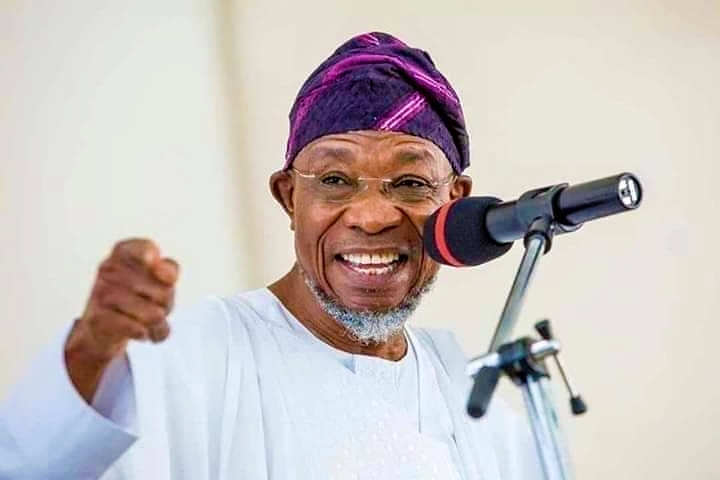
Aregbesola no longer member of APC, says ex-Osun commissioner
The immediate past Osun State Commissioner for Local Government and Chieftaincy Affairs, Mr Adebayo Adeleke, has said ex-Minister of Interior, Mr Rauf Aregbesola, is not a member of the All Progressives Congress.
Adeleke served as a commissioner in the cabinet of ex-governor Adegboyega Oyetola, currently serving as the Minister of Marine and Blue Economy.
He spoke at the Osun Central Senatorial meeting of the APC held in Osogbo, Osun State capital.
The APC chieftain said all serious party members in the state were aware that Aregbesola was not currently a member of the party.
READ ALSO:
- Ex-FCMB manager sentenced to 121-year imprisonment
- Journalist hit by stray bullet at Kano Govt house
- Organ Harvesting: Police arrest 10 suspects in Lagos
Speaking at the meeting attended by the APC National Secretary, Senator Ajibola Basiru, and other party bigwigs from the ten local government areas that made up the senatorial district, Adeleke insisted that the two ex-governors in Osun APC are Chief Bisi Akande and Oyetola.
Adeleke said, “They said in our party in Osun, we have two former governors, we have Chief Bisi Akande and ex-governor, Adegboyega Oyetola.
“Someone asked about ex-governor Rauf Aregbesola, and my response is that all members of the APC know that Aregbesola presently is not a member of our party.”
Aregbesola no longer member of APC, says ex-Osun commissioner
Politics
Senate in rowdy session as lawmakers quarrel over sitting arrangement
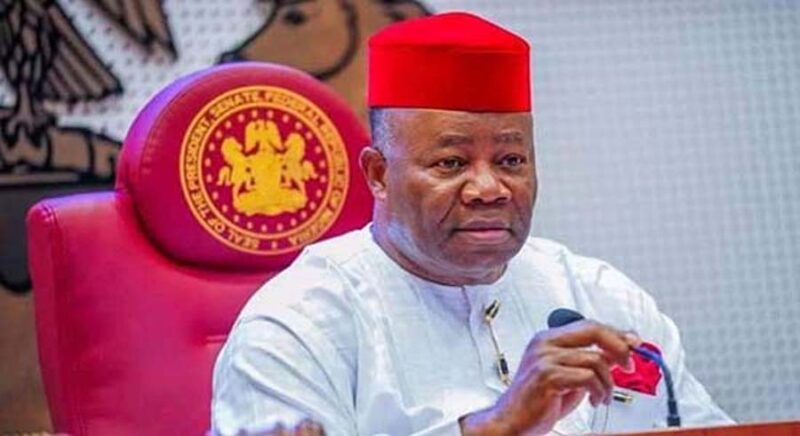
Senate in rowdy session as lawmakers quarrel over sitting arrangement
The Senate broke into a rowdy session on Tuesday after three senators engaged in a heated argument over arrangement of seats.
Danjuma Goje, senator representing Gombe Central, and Sahabi Yau, senator representing Zamfara North, expressed displeasure over the seats assigned to them.
They complained to Opeyemi Bamidele, the majority leader.
The Senate is currently using its refurbished chamber, two years after renovation began on it.
According to the standing rules of the upper legislative chamber, senators should sit in order of rank.
The Easter and Sallah recess was postponed to accommodate the completion of the renovation of both chambers of the national assembly.
However, while Senate President Godswill Akpabio read his welcome address, the heated argument among the three senators began.
It was learnt that Goje and Yau, sitting on the second row on the right side of the aisle, did not like the seats allocated to them by the senate committee on services.
Sunday Karimi, senator representing Kogi west, is chair of the senate services committee.
The four-term senators subsequently insisted that they should have been assigned seats on the front row on the extreme right — opposite the row of the majority leader and the deputy senate president.
After the argument, Kawu Sumaila, senator representing Kano South, called for a “point of order” which was ignored.
Thereafter, Bamidele moved a motion for a closed-session.
-

 International3 days ago
International3 days agoUS students slam Biden’s comments on Gaza encampments
-
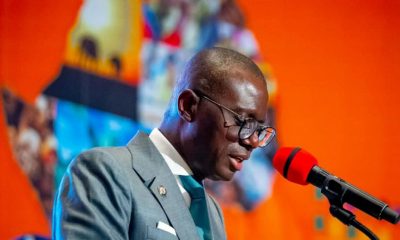
 News3 days ago
News3 days agoLagos GDP hits N41tn, earns N433bn from IGR
-

 Entertainment3 days ago
Entertainment3 days agoSanwo-Olu appoints KWAM1’S daughter as aide
-

 News3 days ago
News3 days agoI never said I’m a billionaire— Ex-Anambra CP
-
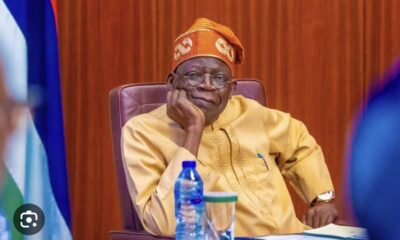
 News2 days ago
News2 days agoDon’t host US, French military bases in Nigeria, northern leaders warn Tinubu
-

 International3 days ago
International3 days agoDam collapses, death toll rises in Brazil floods
-

 Sports22 hours ago
Sports22 hours agoRonaldo’s hat-trick leads Al Nassr to 6-0 victory over Al Wehda
-
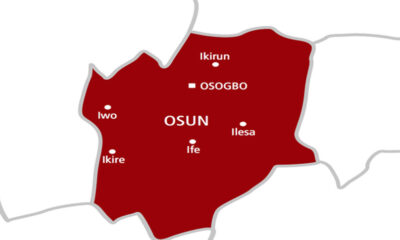
 News3 days ago
News3 days agoGroup protests alleged imposition of Imam in Osun










